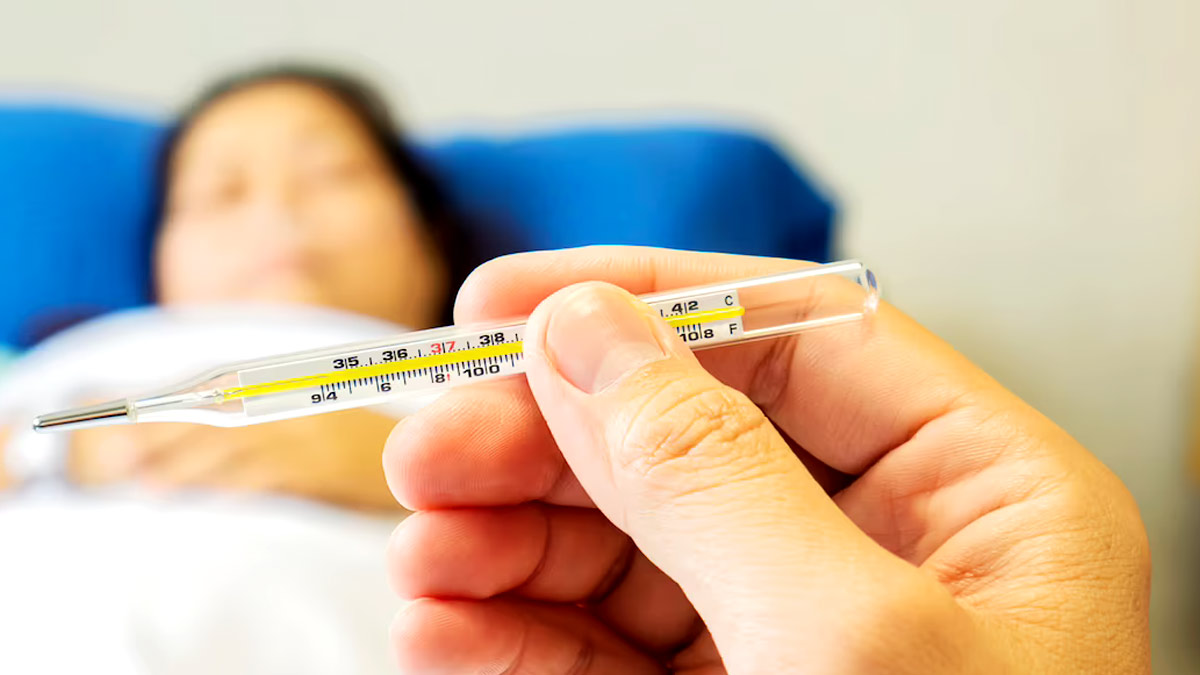
Your risk of being exposed to multiple viruses, bacteria, and other infections is higher during the monsoon. The high moisture content in the air enables harmful microorganisms to thrive, resulting in the transmission of several diseases, including water-borne diseases. To know more about it, we spoke to Dr Ranga Santhosh Kumar, Consultant General Physician and Diabetologist, Yashoda Hospitals, Hyderabad.
Monsoon Diseases and Their Impact
According to the World Health Organization (WHO), more than 3.4 million people are affected by water-borne diseases in India, with children being the most vulnerable due to their developing immune systems.
Typhoid

"Typhoid, resulting from the Salmonella Typhi bacteria, is a waterborne illness that spreads due to inadequate sanitation," said Dr Kumar. He added that eating uncovered or spoilt food and drinking contaminated water are the two major causes of typhoid. "Its symptoms include fever, headache, joint pain, and sore throat," stated Dr Kumar.
Also Read: Diet For Typhoid: What To Eat And Avoid? Here's Everything You Should Know
Cholera
Another water-borne disease you be aware of is cholera. According to Dr Kumar, cholera is also linked to poor sanitation and the consumption of contaminated food, leading to symptoms such as diarrhoea or loose motions.
Leptospirosis
Leptospirosis, also known as Weil's syndrome, arises from contact with unclean water or muck during the monsoon season. "It presents with symptoms like shivers, muscle pain, headache, and fever. If you have any cuts or bruises, be sure to keep them covered before leaving your home," said Dr Kumar.
Jaundice

"Jaundice, a water-borne disease, is contracted through contaminated food and water, and poor sanitation," said Dr Kumar. "It causes liver dysfunction, along with symptoms like weakness and fatigue, yellow urine, yellowing of eyes, and vomiting," he stated.
Gastrointestinal Infections
"Gastrointestinal infections, like vomiting, diarrhoea, and gastroenteritis are caused due to the consumption of stale, uncovered, or contaminated food and water," said Dr Kumar. He advised boiling water before drinking and keeping all foods covered before consumption to avoid stomach infections.
Hepatitis A
Hepatitis A is a viral infection that spreads from contaminated food and water. "It can inflame and damage your liver and exhibit symptoms like fatigue, fever, tenderness in the stomach, yellow eyes, dark-coloured urine, and a sudden loss of appetite," said Dr Kumar.
Also Read: Viral Hepatitis: Symptoms, Causes, Treatment, and Prevention
Preventive Measures to Stay Safe
To protect yourself from water-borne diseases during the monsoon, it is essential to take certain precautions:
- It is important to boil water and thoroughly wash fruits and vegetables before eating them.
- Keep foods covered and avoid eating outside food.
- Maintain personal and environmental hygiene by using hand sanitisers and washing hands frequently.
- Make sure to cover any open drains and potholes in your area to prevent accidents and improve safety.
- If your children have not been vaccinated yet, ensure they receive the necessary vaccinations.
- Stay hydrated by drinking only boiled water and avoiding outside beverages.
- Follow a strict personal hygiene routine to prevent fungal infections.
- Wear full-sleeved and light clothes to protect your skin.
- Consume a balanced diet to keep your immune system strong.
- Opt for freshly washed, boiled vegetables, reduce intake of fats, oils, and sodium, and avoid dairy products that may contain harmful microorganisms.
Conclusion
By following these preventive measures and adopting a healthy lifestyle, you can safeguard yourself and your family from the health hazards posed by water-borne diseases during the monsoon season.
[Disclaimer: This article is for informational purposes only. Consult your healthcare provider to get a thorough diagnosis and treatment as per your health needs.]
Image Credits: freepik







